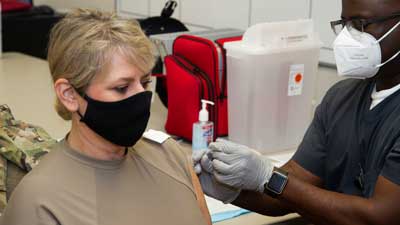
UPDATE: In addition to Illinois, Ohio’s governor announced that the state is closing its bars and restaurants to dine-in customers. That policy goes into effect in Ohio starting at 9 PM on Sunday.
During a briefing on COVID-19, Governor JB Pritzker announced that bars and restaurants will close to dine-in patrons in Illinois.
At this point, the decision does not affect delivery, pick-up, or drive-through services. As for dine-in businesses, the governor says that the closures will go into effect at the end of business on Monday. It will last until March 30.
“There are no easy decisions left to make as we address this unprecedented crisis,” Pritzker said during the briefing on Sunday. “As your governor, I can’t allow the gravity of these decisions from taking the measures that the science and the experts say will keep people safe.”
The Illinois Department of Public Health reported 29 new cases of coronavirus in Illinois on Sunday. That brings the total number of cases in the state to 93 spread across 13 different counties.
“Cases have occurred in all age ranges and the number of cases that do not have a clear connection to travel or a known COVID-19 case is increasing,” the state says.
Five additional counties are now reporting cases. They include Champaign, Clinton, Sangamon, Whiteside, and Winnebago counties. Other counties with previously-disclosed cases include Cook, Cumberland, DuPage, Kane, Lake, McHenry, St. Clair, and Woodford.
“We are seeing the number of COVID-19 cases increase exponentially and in more locations across Illinois,” said IDPH Director Dr. Ngozi Ezike.
“At this point, it is best to assume that the coronavirus is circulating in your community and you should take the same precautions when interacting with other people that you would when interacting with someone who has tested positive for COVID-19. This may seem like an extreme step, but this is how we reduce the number of new cases and prevent the health care system from being overwhelmed,” Ezike added.
This article originally appeared on our sister site, The Chicago Edge.










